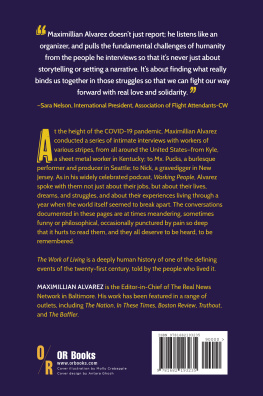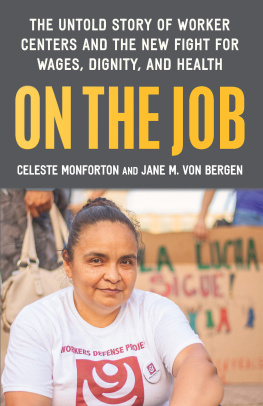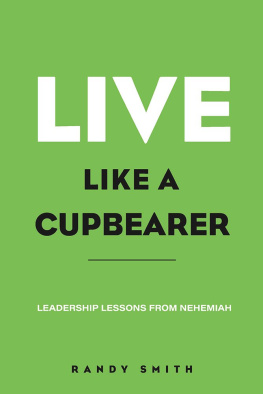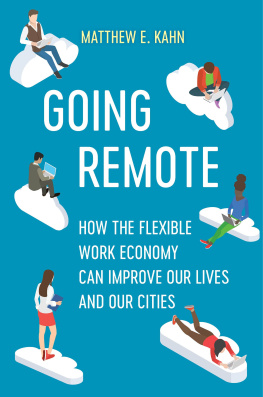



All rights information:
Visit our website at www.orbooks.com
First printing 2022
Published by OR Books, New York and London
2022 Maximilian Alvarez
All rights reserved. No part of this book may be reproduced or transmitted in any form or by any means, electronic or mechanical, including photocopy, recording, or any information storage retrieval system, without permission in writing from the publisher, except brief passages for review purposes.
Library of Congress Cataloging-in-Publication Data: A catalog record for this book is available from the Library of Congress.
Typeset by Lapiz Digital Services. Printed by Bookmobile, USA, and CPI, UK.
paperback ISBN 978-1-68219-323-5 ebook ISBN 978-1-68219-324-2
For my family
Table of Contents
Preface
I had no idea what I wanted this book to be, I just knew that it had to be. The COVID-19 pandemic, compounded by our governments truly villainous failure to respond adequately to it, has taken so much and so many from us. As working people, most of whom had no choice, risked and losttheir lives keeping the gears of commerce and society turning; as many others pickled in the lonesome brine of their own homes; as time melted into a dull, endless horror, and as the horror itself became commonplace, it became clear that, regardless of what comes next, we need to keep a human record of this long momentwe need to remember how this feels. In the future, well need to remember how we felt about this as it was actually happening to us. Because those who aim to capitalize on it will tell us to remember it differently, or theyll have us recall only very select parts of the experience. The question for us thenone of the most deeply political questions of allis: What will we remember, and how will we remember it? When the strange experience of enduring the (first) COVID-19 pandemic coagulates into history, whose voices will go on the record? Who will tell the story of what happened here? How will they tell that story? What will they focus on? And what will we care to listen to?
More importantly: How will we each see ourselves as participants in and shapers of this history? Will we forget all the things that mattered to us at the timeall the ways we experienced and felt about what was happening to us? Will we wash out all the raw, human stuffthe kind of stuff youll find in this bookand leave only a clean, bloodless record of key dates and figures? Or will we carry with us the memory of something more? And will we use that memory to do good, and do better?
In case it wasnt obvious by now, I put this book together in the hope of offering a partial answer to these questions. The people and stories in this book are the kind of people and stories I think should be shaping our collective historical narrative of COVID-19; in fact, for the same reason I think its bad and wrong to simplify, judge, and categorize people we know little about, I think we should all be deeply suspicious of any retelling of human history that leaves little room for, or deliberately excludes, the messy, complex lives of the working people who lived and made it. To see and appreciate that messiness, I believe, is the only way we can begin to understand historyand each other.
History does not happen in broad strokes, nor is it made by a few powerful people; the stories we tell about the past just make it seem that way. Living in a society that has systematically disempowered so many of us for the sake of empowering and enriching so few, it is hard to believe its an accident that we have been taught to see history as something that certain special individuals shape and that the vast, unspecial many merely experience. I certainly hope that a viral event like the COVID-19 pandemic has made clear that the reality is always much more complex and, well, messy. True, from deadly and catastrophic decisions made (or not made) by heads of state like Donald Trump, Boris Johnson, Jair Bolsonaro, and Narendra Modi, to the decisions made (or not made) by city mayors, state governors, influential media personalities, bosses, corporate executives at pharmaceutical companies, prison wardens, etc., certain individuals have had a major hand in shaping the nightmarish unfolding of eventsand must be held accountable for their crimes. But that is only part of the story. Each of us played a role as well. For big and small reasonssome tied to the particularities of our lives and personal histories, others to the pressures our economic realities put on us or the imprint our collective (national, local, and political) cultures leave on uswe all acted and engaged one another in certain ways over these past two years that directly contributed either to the virus spreading and hurting people or to us being able to contain it; that made it possible for us to care for each other and hold society together, or made it easier for things to fall apart. Many of us sacrificed (willingly or by force) to keep the world from collapsing, while many others took advantage of peoples suffering. My point is that the deadly, contagious virus that has spread throughout the world by way of the bodies of millions of people has shown us, in the most morbidly literal way, how much of an impact we have on the world and people around us (and vice versa).
What can the history of such a world-shaking event behow much can that history actually tell us and future generationsif it leaves no record of the kind of intimate experiences, stories, thoughts, feelings, memories, and impressions that make history human? How much can we actually understand what this pandemic was and all that it will mean for the carrying on of humanity if we relegate these things to the periphery of whats historically important? Again, I put this book together in the hope that the people, stories, and conversations in it will offer an answer: not much. This is why this book is built the way it is, why its conversations unfold the way they doat times meandering, sometimes funny or philosophical, at other times punctured by pain and fear so deep that it hurts to read. This is also why the stories of every worker I spoke to for this bookfrom Kyle, a sheet metal worker in Kentucky, to Mx. Pucks, a burlesque performer and producer in Seattle, to Nick, a gravedigger in New Jerseygo way beyond the jobs they do for a living (though we talk about those, too). In the same way that Ive tried from the very start of my podcast Working People to talk to workers not just about their jobs but about their lives where they come from, what their families are like, what memories they hold dear, what they think about thorny political questionsI have tried to approach every conversation I recorded for this book in a way that will make it impossible for readers to ignore the whole human being behind every name tag they see, the precious life behind all the essential work our lives depend on.
History is messy, because it is human, and humanity is messy. The practice of history, I meanIm not just talking about the past as such. Im talking about the stories we tell, the records we keep, and the memories we carry with us that serve as the collective lineage of our species. When we lose the beautiful human messiness of history, it becomes something else entirely, something that is not really ours, a half-true story were told to tell about a dead past where the significant parts have already been colored in for us. This book aims to tell the history of this moment in a different way. Perhaps you could see it as a handful of working people, as if pushing their hands into wet concrete, pressing the imprint of their lives, thoughts, and experiences onto history before it hardens. Because they believe, as I do, that these stories are worth telling, sharing, preserving, and listening to with care. (And Im so grateful to all of them for sharing their stories so bravely, openly, and trustingly with me. Each and every one of them is a beautiful person whom Im honored to now know.)
Next page








